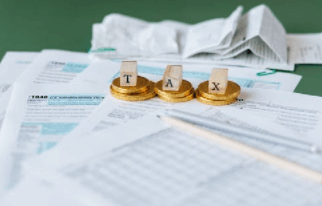7 Essential Tips for Successfully Purchasing Commercial Property
7 Essential Tips for Successfully Purchasing Commercial Property
An advantageous property purchase can absolutely transform the success of your business. Equally, a poorly considered or inadequately researched transaction can result in a costly disaster. Unfortunately, even experienced business owners can end up making a dodgy purchase if they don't get the right professional assistance.
KMB Legal offers a complete conveyancing service for industrial property, commercial properties, commercial investment, and retail property, ensuring that all appropriate checks and procedures are completed prior to purchase. Using our extensive experience, we've put together seven considerations to take into account when planning to buy commercial properties.
Use professionals to draw up contracts on the commercial property market rent and commercial property investment
If you've previously bought an office building, own business, then office space, or residential property, you may feel that putting together a contract for a commercial real estate property purchase is going to be no more complex than residential conveyancing. Unfortunately, retail space is not the case. Buying Commercial property investment frequently requires detailed, complicated investment property contracts.

In particular, the "Special Conditions" (the customized part of the contract that deals with the minutiae of your specific purchase) need to be drafted with care and comprehensive knowledge of the commercial investment. It is actually illegal for a commercial agents or some other unqualified professional to draft complex market factors to the commercial property owners.
Use a professional legal team to work on your contract in order for it to accurately reflect every aspect of the sale, minimizing the risk of unpleasant surprises further down the line.
Residential property and commercial properties search matter!
Buying commercial property involves a series of searches that need to be completed in order to get a clear picture of any outstanding debt, population growth locations, rental income, or challenging circumstances that relate to the property. Buying a commercial property outstands land tax depreciation schedule. For example, buying commercial property will be transferred to you, the new owner if it's still outstanding at the point of purchase.

Searches are also needed to check for potential threats and hazards (for example, searches can help to quantify the risk of subsidence or flooding). Making sure that all the appropriate searches for commercial demand are carried out needs to form part of the conditions included in the contract. Searches provide the vital information needed to make a sensible purchasing decision on residential properties.
The greater the number of searches that are carried out, the easier it is to have an accurate understanding of the pros and cons of your chosen property.
Going concerns and Goods and Services Tax (GST).
If a commercial property isn't sold as a "going concern", the seller will be liable for GST. If both vendor and purchaser agree that the property is a "going concern" (a business that is fully operational and turning a profit), it may be possible to avoid GST being paid on the transaction.

For this to happen, both parties needed to be registered for GST, and a lease needs to form part of the sale transaction. Note that you may be challenged on the validity of the "going concern" justification for not paying GST by ATO.
To minimize the risk of a subsequent GST clawback by ATO, we suggest making sure that appropriate safeguards are inserted into the contract, and also obtaining professional advice on whether your proposed purchase is likely to qualify as a "going concern".
Do you know who your buyer is?
Although it may seem obvious which organization is interested in purchasing your commercial property for infrastructure development. It is vital to be completely clear on the property management options when buying a vastly different commercial proposition.
Although the difference between a trust, a limited company, or a partnership may appear negligible in terms of their interest in the property you've got on commercial sales, the reality is that there are growing consumer demand and differences in the way these entities operate when it comes to:
- legal constraints
- lease terms, and leasing arrangements
- retail sector
- rental income
- taxation
- economic factors;
- and stamp duty.
Entering into a contract with an organization without being fully conversant with the way in which it operates could leave you severely out-of-pocket. Why risk it? If in doubt, always use a legal professional to establish the nature of your purchaser.
They will also be able to put in place suitable safeguards in the contract to prevent any financial kickbacks later on.
What does your lease state?
If the commercial premises you're considering buying (or selling) has a lease attached to them, it's important to be clear on how this will affect the commercial premises, when a change of ownership is being considered. Leaseholders have a considerable number of rights enshrined in law.
Depending on the leasing agreement, the existing tenant may legally have the right to be asked first if they want to purchase commercial property before it's put on the general residential market rent. They may also be a "fait accompli" when the property ownership is transferred.
Lease arrangements are notoriously complex, which is why it's crucial that all parties are clear on how a lease affects the sale.
Capital Gains Tax Benefits
Capital Gains Tax (CGT) is a perennial headache for commercial property buyers. At its most basic, CGT is calculated by subtracting the sale price from the original purchase price, plus upkeep expenses for the duration of the property ownership.
Different entities pay varying amounts of CGT. Given the significant sums that may be involved, we strongly suggest using professional accounting services to calculate the potential for CGT, as well as to come up with strategies that could keep CGT payment to a minimum.
Goods and Service Tax (GST)
It's not an urban myth that a purchaser presumed that the cost of a commercial property was inclusive of GST, whilst the vendor believed the purchase price to exclude GST! After a protracted court case, it was agreed that the property was, in fact, sold exclusive of GST.
This meant that the buyer was responsible not only for paying for the property but for the (not insignificant) GST bill as well! Don't let this be you. The clarity in the terms of the property transfer contract is absolutely essential if costly errors like this are going to be avoided.
KMB Legal has seasoned legal professionals on hand to take you through every stage of the commercial property-purchase process. Get in touch now to find out more about the benefits that legal counsel and representation can bring, or to tell us more about your intended commercial property purchase.





